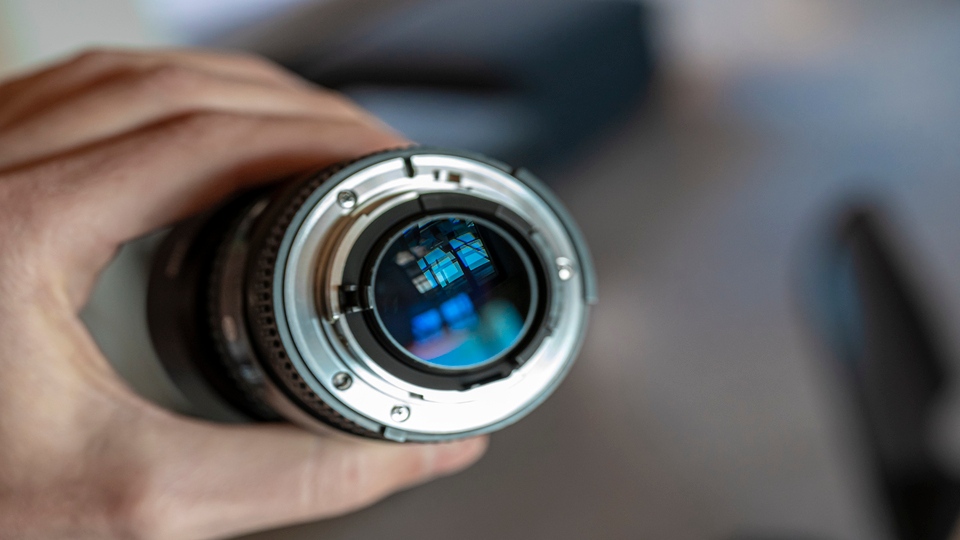Children’s Eye Examinations: When and How to Check Your Child’s Vision
12/01/2026

05/05/2025
In the age of photography, we're constantly chasing sharper images, better sensors, and perfect lighting. But no matter how advanced our cameras get, there's still one lens technology that's been evolving for millions of years — the human eye. Often compared to a high-end DSLR or mirrorless camera, the human eye is a marvel of biological engineering. But how does it truly compare?
The human eye works like a biological camera, capturing light and sending images to the brain for processing. It contains several components that mimic those in digital cameras:
Human Eye: Natural crystalline lens adjusts shape to focus instantly.
High-End Camera: Mechanical autofocus system (varies by lens and camera).
Winner: Human Eye
Human Eye: Iris adjusts pupil size dynamically from ~2mm (bright) to ~8mm (dark).
High-End Camera: Aperture ranges from f/1.4 to f/22 depending on the lens.
Winner: Human Eye
Human Eye: Adapts to brightness/darkness over time (dark adaptation).
High-End Camera: Requires ISO adjustments, limited in extreme light conditions.
Winner: Human Eye
Human Eye: ~576 megapixels (not uniformly detailed — central vision is sharpest).
High-End Camera: 40–60+ megapixels, evenly distributed across the sensor.
Winner: Tie (depends on use)
Human Eye: Sees ~10 million colors using cone cells (RGB).
High-End Camera: Captures color via RGB sensor filters, less nuanced.
Winner: Human Eye
Human Eye: Excellent at adjusting to shadows, mid-tones, and highlights in real time.
High-End Camera: Good, but limited — needs HDR modes or post-processing.
Winner: Human Eye
Human Eye: Sees 30–60 fps; brain predicts movement and fills in gaps.
High-End Camera: Shoots at up to 120–240 fps, with crisp clarity in high-speed shots.
Winner: Camera (pure fps), but Eye (prediction)
Human Eye: No batteries needed; powered naturally by the body.
High-End Camera: Requires charging or batteries; limited usage time.
Winner: Human Eye
Human Eye: Compact, always available, instant focus and vision.
High-End Camera: Bulky with lenses and gear; not always accessible.
Winner: Human Eye
Human Eye: Self-repairing to some extent (e.g., tears, dryness); sensitive to trauma.
High-End Camera: Durable under certain conditions but prone to external damage (dust, water, drop).
Winner: Tie
While the human eye outperforms even the most advanced cameras in many ways, it is also delicate and irreplaceable. In today's digital world, our eyes are under constant strain. Prolonged screen time, exposure to blue light, environmental pollution, and high levels of stress can lead to issues such as eye strain, blurred vision, and dryness. These symptoms, if ignored, can escalate into more serious problems like digital eye fatigue, deteriorating vision, or even long-term damage.
As we age, the risks increase. Common age-related conditions like presbyopia, cataracts, glaucoma , and macular degeneration can significantly impact quality of life. However, many of these issues are manageable or even preventable when caught early. This makes regular eye examinations essential — not just for correcting vision but also for identifying potential health concerns before they become severe.
Early detection, timely intervention, and professional guidance can preserve your eyesight well into the later stages of life. Prioritizing eye health today ensures you continue to see the world with clarity and confidence tomorrow.
When it comes to protecting your most powerful lens — your eyes — it's important to trust specialists who understand their complexity. Barraquer Eye Hospital stands as a global leader in eye care, offering advanced diagnostic tools, highly skilled ophthalmologists, and a patient-first approach to vision health. Whether it's a routine eye checkup, corrective procedure, or complex surgical treatment, Barraquer ensures personalized care backed by decades of expertise and innovation.
In a world where high-end cameras may try to replicate what we see, there's still nothing as advanced, intuitive, or beautiful as the human eye — and Barraquer Eye Hospital is here to help you take care of it for life.
For consultation, please contact us:
Our team will be pleased to assist you.